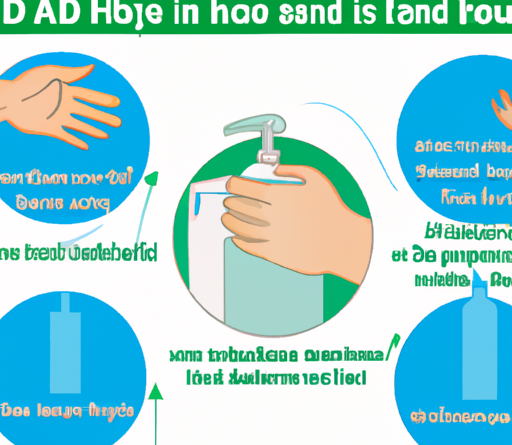
Hey there! Have you been trying to conceive and wondering if there are any surefire methods to get pregnant? Well, you’re in luck! In this article, we’re going to discuss 5 tried and tested methods that may increase your chances of getting pregnant. Whether you’re just starting your journey towards parenthood or have been trying for a while, these tips could be just what you need to boost your chances of conception.
If you’re curious to know more about these 5 surefire methods, then keep reading! We’ll dive into each method in detail and provide you with practical tips and advice to help you on your journey. From understanding your menstrual cycle to making lifestyle changes and considering fertility treatments, we’ll cover it all. By the end of this article, you’ll have a better understanding of what you can do to increase your chances of getting pregnant and hopefully be one step closer to achieving your dream of starting or expanding your family. So, let’s get started!
Table of Contents
5 Surefire Methods to Get Pregnant

Introduction
Many couples dream of starting a family and having a baby. However, for some, getting pregnant may not come as easily as expected. If you and your partner have been trying to conceive without success, don’t despair. There are several proven methods you can adopt to increase your chances of getting pregnant. In this article, we will explore five surefire methods to help you achieve that long-awaited pregnancy.
Understanding Fertility
Before diving into the methods, it’s crucial to have a solid understanding of fertility. Knowing your menstrual cycle and identifying your fertile window are key factors in maximizing your chances of conceiving.
Know Your Menstrual Cycle
Understanding your menstrual cycle is essential because it determines when you are most fertile. Most women have a 28-day cycle, but it can vary from person to person. Keeping track of your menstrual cycle and noting the length of each cycle can help identify patterns and predict ovulation.
Identify the Fertile Window
The fertile window is the period in your menstrual cycle when you have the highest chances of getting pregnant. It usually occurs a few days before and after ovulation. Ovulation typically happens around 14 days before the start of your next period. There are several methods to help you determine your fertile window, such as tracking basal body temperature and monitoring changes in cervical mucus.
Maintaining a Healthy Lifestyle
Adopting a healthy lifestyle is not only beneficial for your overall well-being but also for your fertility. Making simple changes to your diet, maintaining a healthy weight, exercising regularly, and reducing alcohol and caffeine intake can significantly improve your chances of conception.
Adopt a Balanced Diet
Eating a well-balanced diet is crucial for optimal fertility. Include plenty of fruits, vegetables, whole grains, lean proteins, and healthy fats in your meals. Avoid processed foods and focus on nutrient-rich options. Additionally, incorporating fertility-boosting foods such as leafy greens, nuts, seeds, and berries can provide essential vitamins and minerals.
Maintain a Healthy Weight
Being underweight or overweight can impact your fertility. Maintaining a healthy weight increases your chances of getting pregnant. Excessive weight can disrupt hormonal balance and ovulation, while being underweight can lead to irregular or absent periods. Achieving a healthy weight through balanced nutrition and regular exercise can optimize your fertility.
Exercise Regularly
Regular exercise not only helps you maintain a healthy weight but also improves fertility. Engaging in moderate-intensity physical activities like walking, swimming, or yoga can enhance blood circulation and reduce stress levels, promoting reproductive health. However, excessive exercise or intense workouts can negatively affect ovulation, so it’s important to strike a balance.
Reduce Alcohol and Caffeine Intake
Excessive alcohol and caffeine consumption can hinder your chances of conceiving. Studies have shown that alcohol can disrupt hormone levels and ovulation, while high caffeine intake can impair fertility. It is recommended to limit alcohol consumption to moderate levels and reduce caffeine intake to one or two cups per day when trying to get pregnant.
Optimizing Sexual Intercourse
The timing and positions during sexual intercourse can significantly impact your chances of conception. Understanding the right time to have sex and exploring different positions that aid conception can greatly increase the likelihood of getting pregnant.
Timing is Key
Having intercourse during your fertile window is crucial for successful conception. Aim to have sex every 1 to 2 days during this period to maximize the chances of sperm meeting the egg. Additionally, it is essential to enjoy intimate moments with your partner without putting too much pressure solely on conceiving.
Positions that Aid Conception
While there is no scientific evidence that specific sexual positions guarantee pregnancy, certain positions can help facilitate sperm reaching the cervix. Positions such as missionary (man on top) and placing a pillow under the hips after intercourse can help sperm travel towards the fallopian tubes more effectively.

Using Ovulation Prediction Kits
Ovulation Prediction Kits (OPKs) are useful tools for identifying your fertile window accurately. They detect hormonal changes that occur prior to ovulation, indicating the best time to try for a baby.
Advantages of Using OPKs
OPKs offer several advantages for couples trying to conceive. They provide a clear indication of the most fertile days in your cycle, taking the guesswork out of timing intercourse. OPKs are easy to use and readily available at pharmacies or online. They can be particularly helpful for women with irregular cycles or those who want to have more control over their reproductive journey.
How to Use OPKs Effectively
To use OPKs effectively, it’s essential to follow the instructions carefully. Begin testing a few days before your expected ovulation date and continue until you receive a positive result. You may need to test urine samples at a specific time of the day, usually in the afternoon or evening. Once you detect a positive result, it indicates that ovulation will occur within the next 24 to 48 hours, giving you the best chance of getting pregnant.
Seeking Medical Help
If you’ve been trying to conceive for a year (or six months if you’re over 35) without success, it may be time to consult a fertility specialist. They can perform diagnostic tests and procedures to identify any underlying issues that could be hindering your fertility.
When to Consult a Fertility Specialist
If you suspect you may have fertility issues or if you meet the criteria mentioned earlier, it’s recommended to schedule an appointment with a fertility specialist. They can evaluate your medical history, conduct tests, and provide expert guidance on the next steps to take.
Diagnostic Tests and Procedures
Fertility specialists may perform various diagnostic tests and procedures to determine the cause of infertility. These may include blood tests, ultrasound examinations, hysterosalpingography (HSG) to check fallopian tube blockages, or semen analysis for male partners. Based on the results, they can recommend suitable treatment options to help you conceive.

Alternative Fertility Methods
Assisted reproductive techniques can be an option for couples struggling with infertility. Two commonly used methods are In vitro fertilization (IVF) and Intrauterine Insemination (IUI). Additionally, using donor eggs or sperm can be considered if necessary.
In vitro Fertilization (IVF)
IVF involves fertilizing an egg with sperm outside the body before transferring the resulting embryo into the uterus. It’s a complex and expensive procedure, but it offers higher success rates for couples with severe infertility issues or specific medical conditions.
Intrauterine Insemination (IUI)
IUI, also known as artificial insemination, involves placing specially prepared sperm directly into the uterus to increase the chances of fertilization. This procedure is commonly used when there are mild fertility issues or unexplained infertility.
Donor Egg or Sperm
For some couples, using donor eggs or sperm may be the best option to achieve pregnancy. This can be due to certain medical conditions, genetic factors, or a lack of viable eggs or sperm. Donor eggs or sperm can be obtained from individuals who undergo thorough screening processes to ensure their suitability.
Managing Stress and Emotional Well-being
Trying to conceive can be an emotionally challenging journey, filled with various ups and downs. Managing stress and prioritizing emotional well-being is essential during this time.
Coping with the Emotional Rollercoaster
Couples may experience a rollercoaster of emotions during their fertility journey. It’s important to acknowledge and express these feelings openly. Find healthy coping mechanisms such as journaling, talking to a supportive friend or partner, practicing relaxation techniques, or engaging in activities you enjoy. Taking care of your mental and emotional health can positively impact your overall well-being and fertility.
Support Groups and Counseling
Joining support groups or seeking counseling can provide valuable emotional support. Sharing experiences with others who are going through similar challenges can offer a sense of community and understanding. Fertility counselors or therapists can also guide you through the emotional aspects of infertility and provide coping strategies.

Dealing with Infertility Challenges
If all attempts to conceive naturally have been unsuccessful, it may be time to explore other paths to parenthood. Adoption or surrogacy can be wonderful options for couples who are unable to have biological children but still desire to become parents.
Exploring Other Paths to Parenthood
Adoption allows couples to provide a loving home to a child in need. There are various adoption agencies and organizations that can guide you through the process and help match you with a child. Surrogacy involves another woman carrying a couple’s baby to term. It can be a complex process but can result in the fulfillment of the dream of becoming parents.
Considering Adoption or Surrogacy
Deciding to pursue adoption or surrogacy is a personal choice that requires careful consideration. It may involve legal and financial aspects, so researching and seeking guidance from professionals is crucial. Nevertheless, both adoption and surrogacy have brought joy to countless families and offered individuals the opportunity to experience the wonders of parenthood.
Conclusion
Getting pregnant is a journey that can involve some obstacles along the way. However, by understanding your fertility, maintaining a healthy lifestyle, optimizing sexual intercourse, using ovulation prediction kits effectively, seeking medical help when needed, and managing stress and emotional well-being, you can increase your chances of getting pregnant. Remember, every couple’s journey is unique, and persistence, patience, and a little help can lead to the realization of your dream of starting a family.








